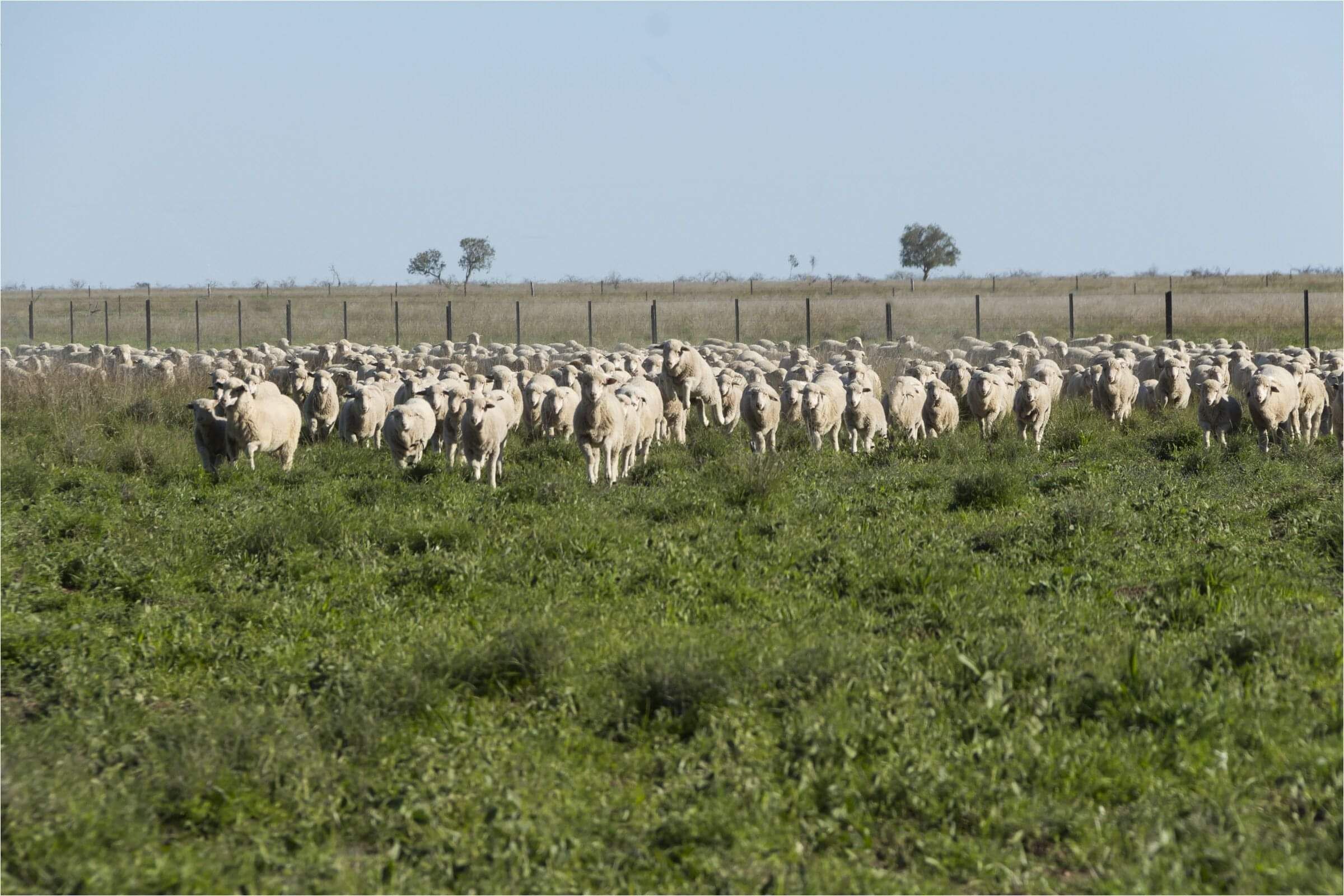animal welfare at dunblane
Our standard of animal husbandry complies with that being discussed on a global platform, and exceeds standards contained in the Australian Animal Welfare Standards.
We have adopted a multitude of practices to ensure our animals are happy and well cared for through:
- Reducing, refining and replacing painful animal husbandry practices
- Implementing best practice sheep management
- Ensuring humane processing
- Preventing and managing disease and mortality
We are excited about the continuous improvements to sheep and animal welfare standards on the horizon. As an Australian wool grower, we contribute to the AU$77 million since 2001 into research and development that focuses on the health and welfare of sheep. Of particular interest to us is the emergence of new technologies for sheep selection based on DNA and genetic markers, and the science that AWI have been reviewing with regard to odour detection and how blowflies find sheep.
In 2018, Dunblane was certified under the Responsible Wool Standard (RWS), a global, voluntary standard that recognises farming best practice. The heart of the RWS is treatment of sheep with respect to their five freedoms:

Freedom to express normal patterns of behaviour
We closely monitor our pastures to ensure appropriate stocking rates for particular mobs and paddocks, thus allowing sheep to roam freely in the company of fellow sheep.
Construction of laneways to 65% of paddocks allow our sheep to return to paddocks in a low stress manner.
We have constructed over 45km of wild dog exclusion fences to address wild dog predation.
Freedom from hunger, thirst and malnutrition
We implement grain feeding systems to better target the supplement feeding programs to all sheep in the paddock. This has significantly reduced mortalities and low Condition Score sheep during dry seasons.
All large paddocks have 2 water points so sheep have less distance to walk.
Freedom from discomfort
AWI developed Animal Husbandry/Welfare posters are displayed in our shearing shed and our shearing teams recognise the critical importance of a positive shearing experience for every sheep.
Freedom from fear
Sheep do not like to be individually handled by humans, so to minimise handling and time handling, as well as to facilitate low stress handling, we have invested in a wide range of sheep handling equipment.
Cradle crutching is employed to reduce time that individual sheep are handled at crutching time.
To eradicate the stress to sheep caused by dogs, we do not use sheep dogs and we have significantly reduced the use of contractor's dogs for mustering and yard work.
Freedom from pain, injury and disease
No mulesing of sheep has been carried out on Dunblane since 2008 - we have addressed blowfly risk through genetics, changes to our management calendar and minimal use of chemicals.
Pain relief is provided to animals for castration, tail docking and horn tipping.
Our increased use of polled rams means no ram horn tipping as well as the sheep being easier to shear with far less poll fly strike.
High mortality rates are an indicator of major welfare issues. We closely monitor biological benchmarks and track our mortality rates. Since installation of wild dog exclusion fences, mortality rates have fallen to well below industry levels.
Our adherence to vaccination programs significantly reduces incidence of disease.
